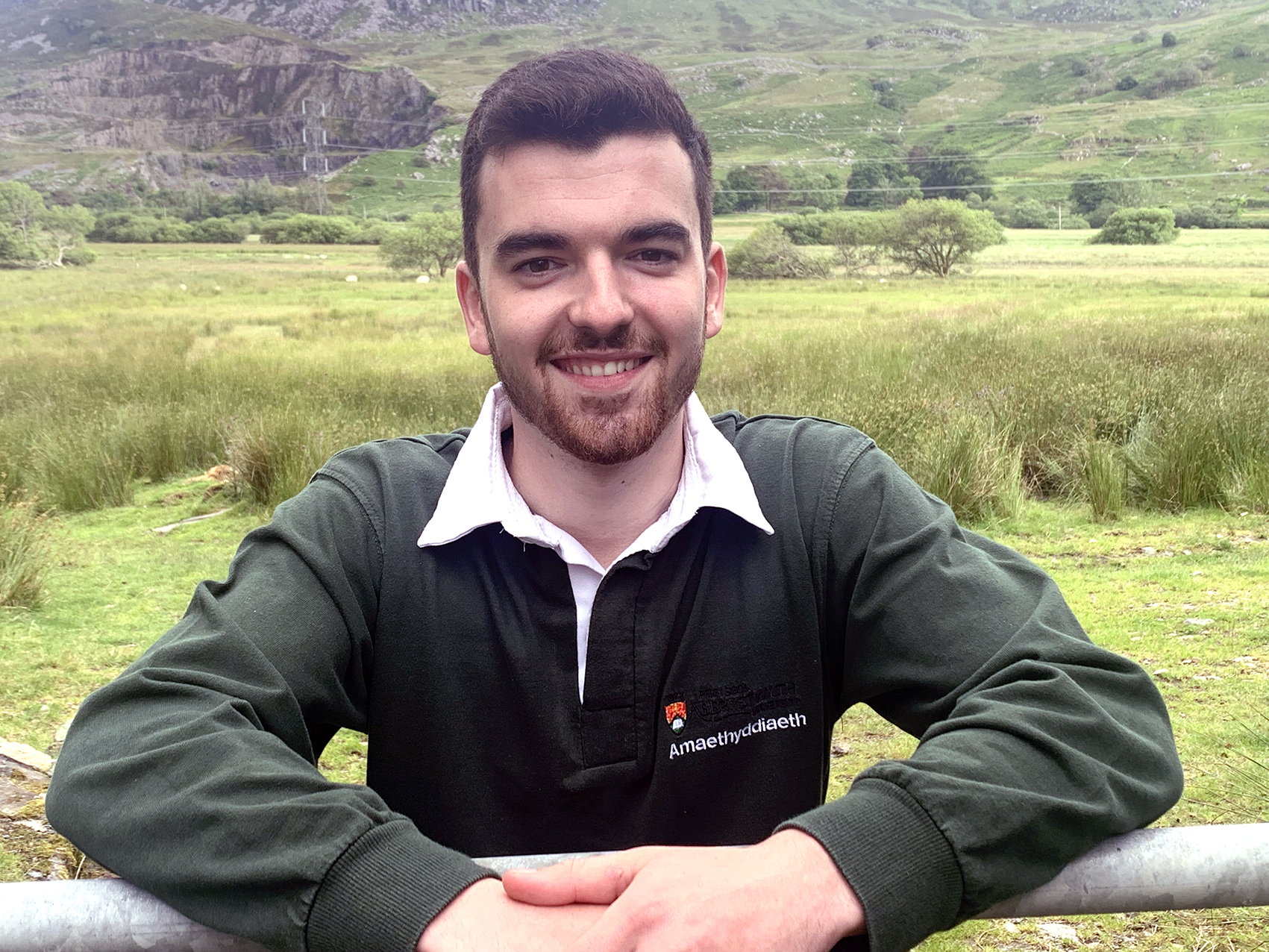 by Osian Gwyn Jones, a hill farm’s son from Arenig, Y Bala, Gwynedd
by Osian Gwyn Jones, a hill farm’s son from Arenig, Y Bala, Gwynedd
Agriculture has always been a passion of mine, and I loved helping my father on the farm when I was younger. I grew up in Rhyd-y-Fen, Arenig, an upland farm that extends from 340m up to 700m where we keep Welsh Mountain sheep as well as Welsh Black cattle.
I received my primary school education at Ysgol Bro Tryweryn, Frongoch, before going on to secondary school at Ysgol y Berwyn, Bala. In the 6th form, I had the opportunity to do my A levels, as well as completing a BTEC in agriculture. Following Ysgol y Berwyn re-introducing an agricultural qualification, I was part of the second year to study it.
I am delighted to have taken this opportunity, as it laid the foundation of my agricultural education and we were able to visit the SIMA and SIA shows in Paris during the first year, and the McHale factory in County Mayo during the second year.
Following this, I decided that I wanted to study an agriculture course at Aberystwyth University. At university, I enjoyed all the work associated with agri-environment as it was very relevant to our type of farming at home and very current due to the increased public interest in the environmental footprint of their food.
Three years and a first class honours degree later, I am joining an industry at an uncertain crossroad, and I hope to be the 4th generation at Rhyd-y-Fen.
My hopes for the future of the agriculture industry:
One of my main hopes for the future of the agriculture industry is that the new agri-environment schemes will continue to maintain agriculture in the uplands in the same way it has done during recent years. I believe that the Welsh uplands are rich in natural capital and it is high time for the public to realise which ecosystem services agriculture provides.
In terms of the future of the industry, the Agriculture (Wales) White Paper consultation document establishes sustainable land management as the overarching principle for the future agricultural policy of Wales to mitigate the effects of intensive agriculture on the environment (Section 3, paragraph 2.48).
The document also states that the new scheme should reward farmers for the production of non-market goods (improving soil, clean air, clean water, increasing biodiversity and steps to reduce global warming) at levels above the regulations through sustainable land management (Section 3, paragraph 2.60).
I wrote my dissertation on the possibility of using lime to prevent flooding, in which I studied the effects of different periods since adding lime on water infiltration of grassland. This was done by observing the relationship of pH, clover cover, worm population and organic matter with water infiltration. This is an example of the kind of work that I hope farmers will be rewarded for in the future, where sustainable intensification enables increased productivity without damaging the environment.
The Welsh Government's target to plant 4000ha of woodlands each year as part of the Low Carbon Delivery Plan in 2019, which has doubled from the 2000ha / year target set in 2018 as part of the Woodland Strategy for Wales is of concern. The inevitable consequence of this over the long term would be a decline in Welsh rural and upland societies.
The reduction in land supply will drive prices out of the reach of most Welsh farmers, and represent the final nail in the coffin of Welsh family farms. As the poet Gwenallt warned, “Woods where once was community, A forest where once were farms," and this will lead to a critical decline in the number of Welsh speakers.
I would like to see an agricultural industry that offers plenty of opportunities for young people, as well as seeing changes to enable them to live in their local rural communities. I hope that agriculture will be able to continue in the uplands for generations as it has for centuries, but be able to adapt to the times.
As hill farmers, I believe that we have the opportunity to be at the forefront of 'decarbonising' the Welsh agricultural industry in order to reach the Government’s target of zero-net by 2050.
Bibliography:
Llywodraeth Cymru, 2020. Written Statement: Publication of the Agriculture (Wales) White Paper. <https://gov.wales/written-statement-publication-agriculture-wales-white-paper> [Mynedwyd 30/06/21]
Hybu Cig Cymru,2020. Industry Statistics. <https://meatpromotion.wales/en/industry-statistics> [Mynedwyd 30/06/21]
DEFRA, 2020. Annual production of lamb, beef and pork in Wales (2020). <https://www. gov.uk/government/statistics/cattle-sheep-and-pig-slaughter> [Mynedwyd 30/06/21]


